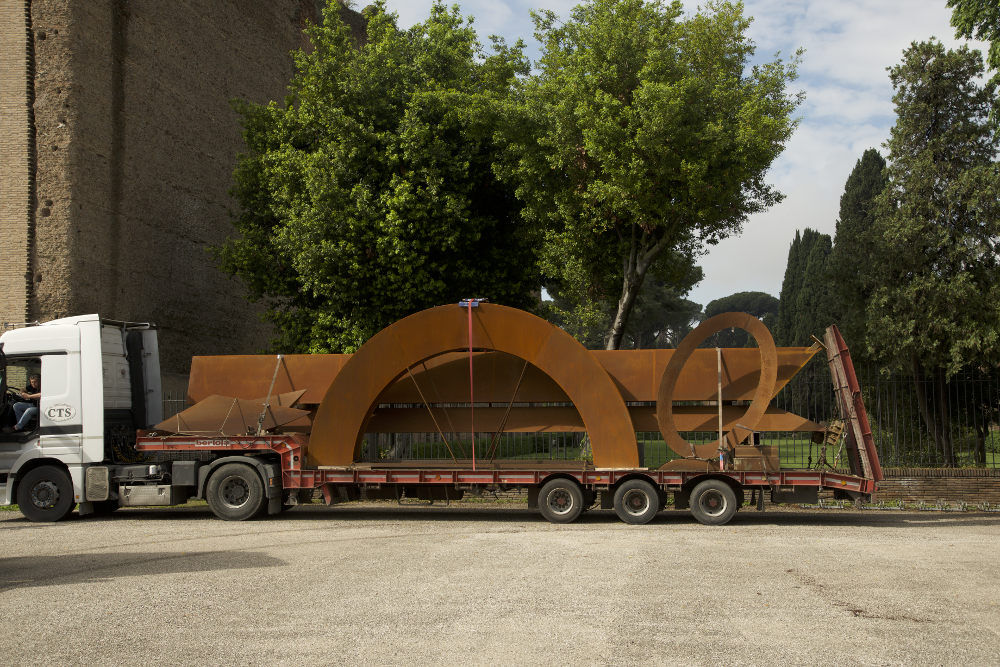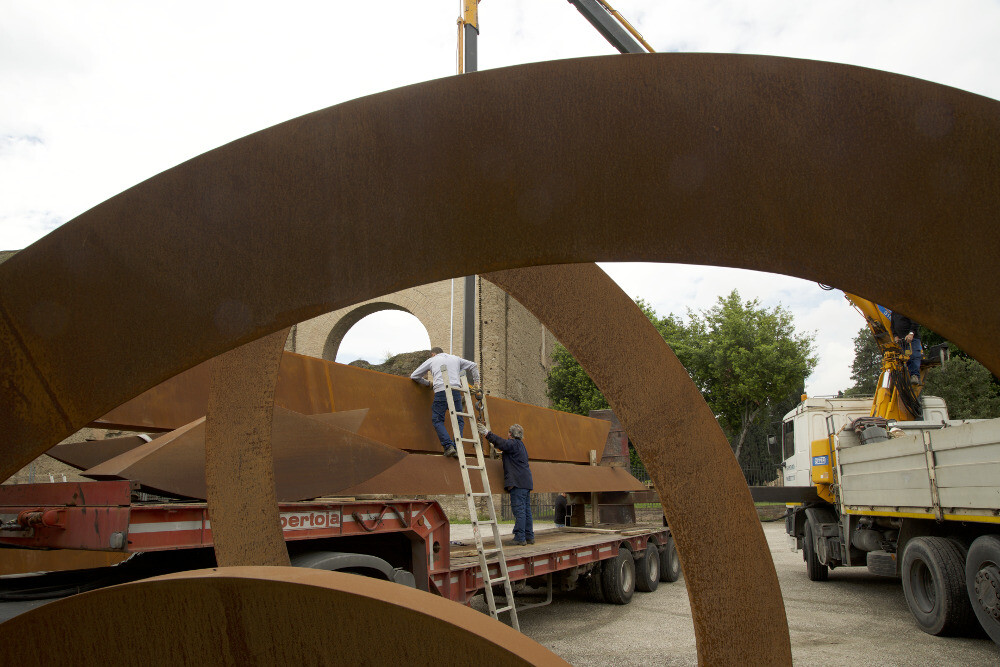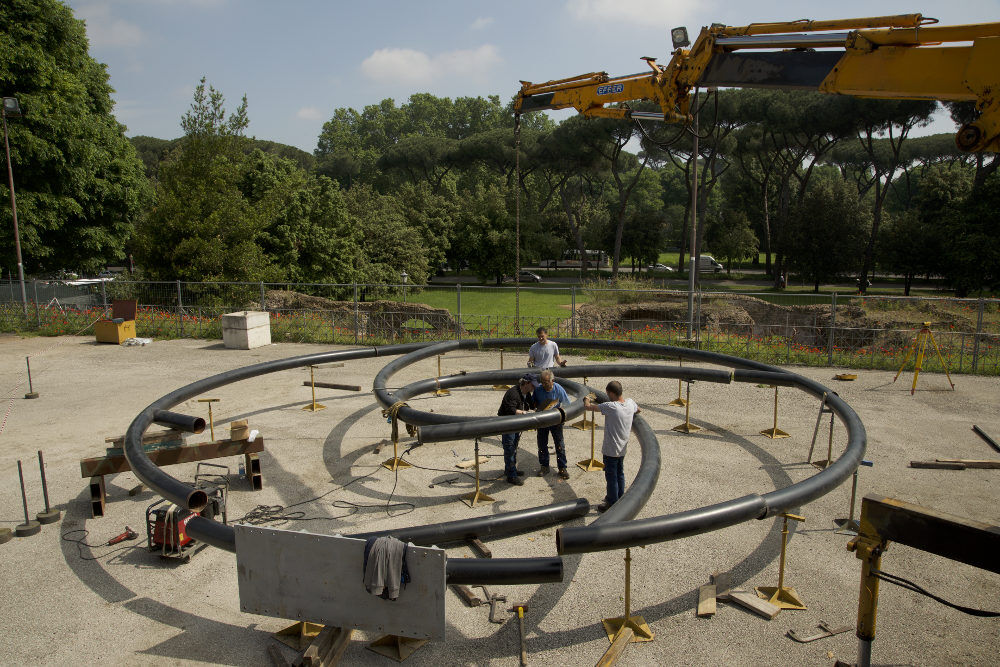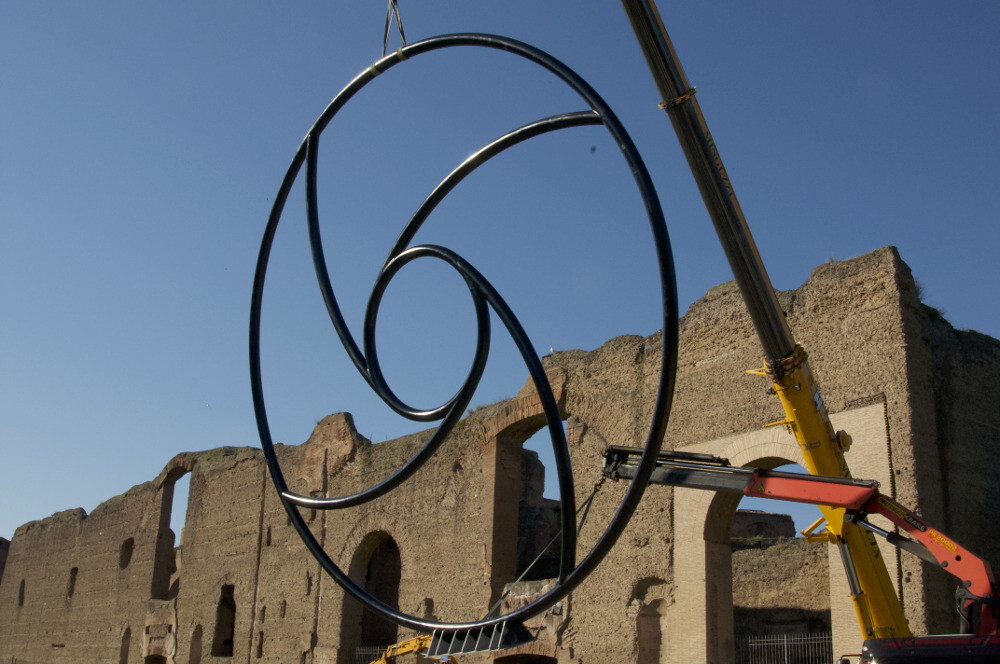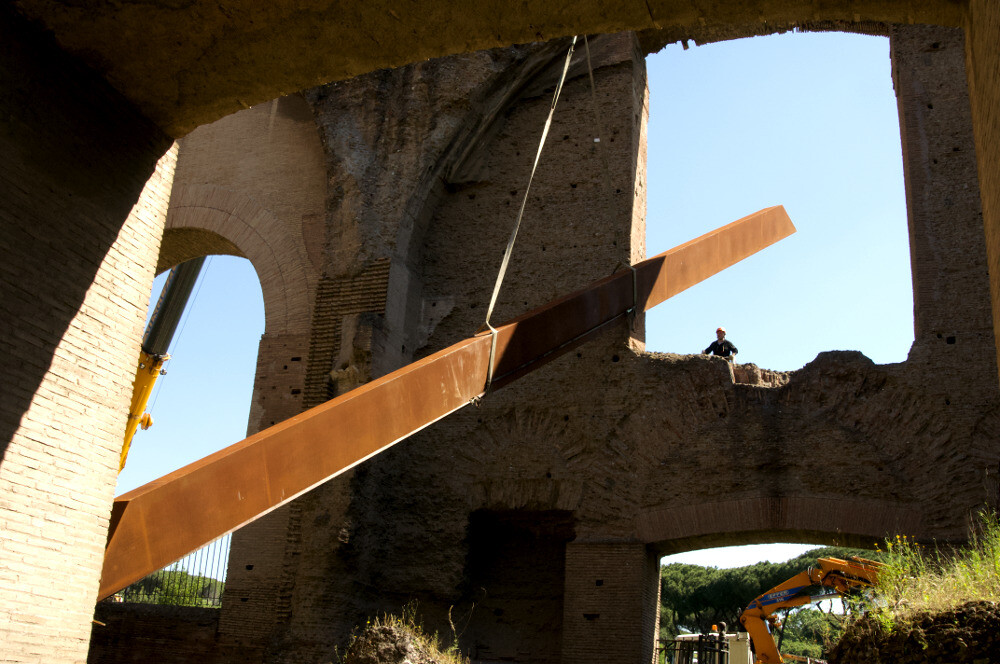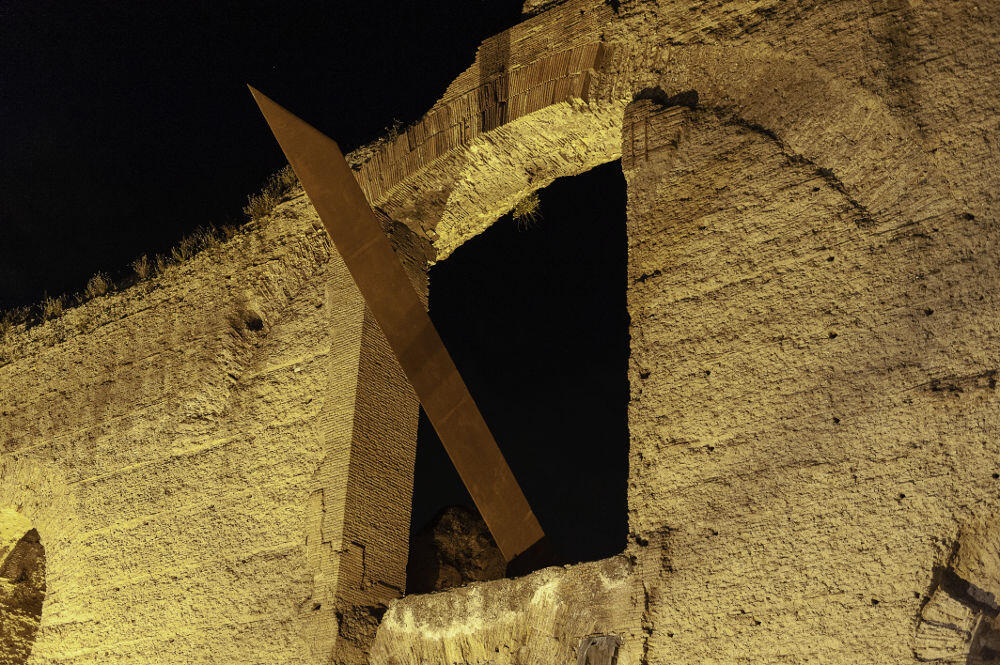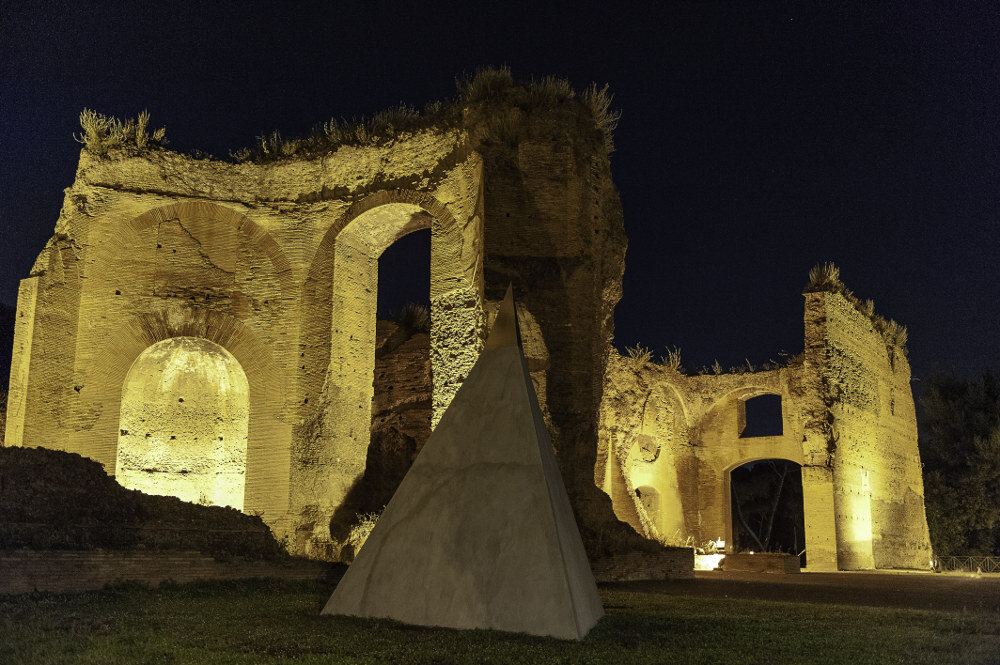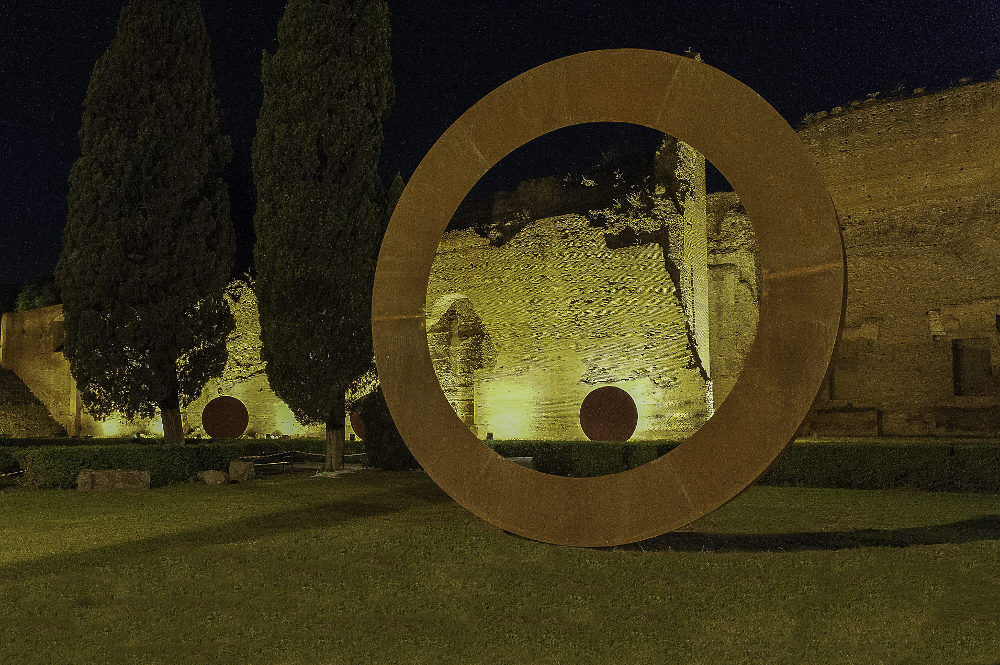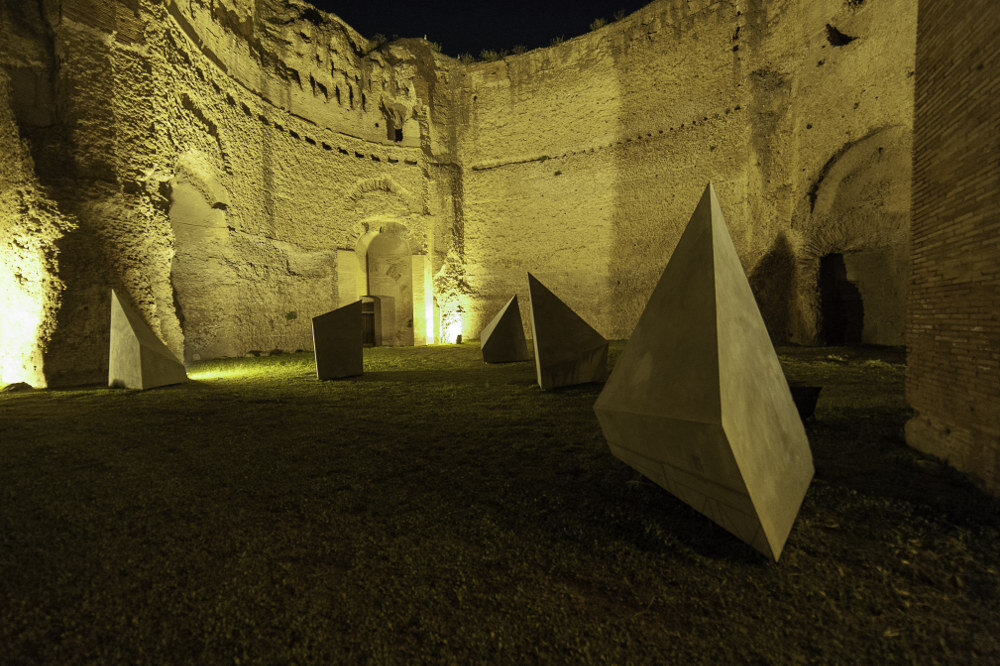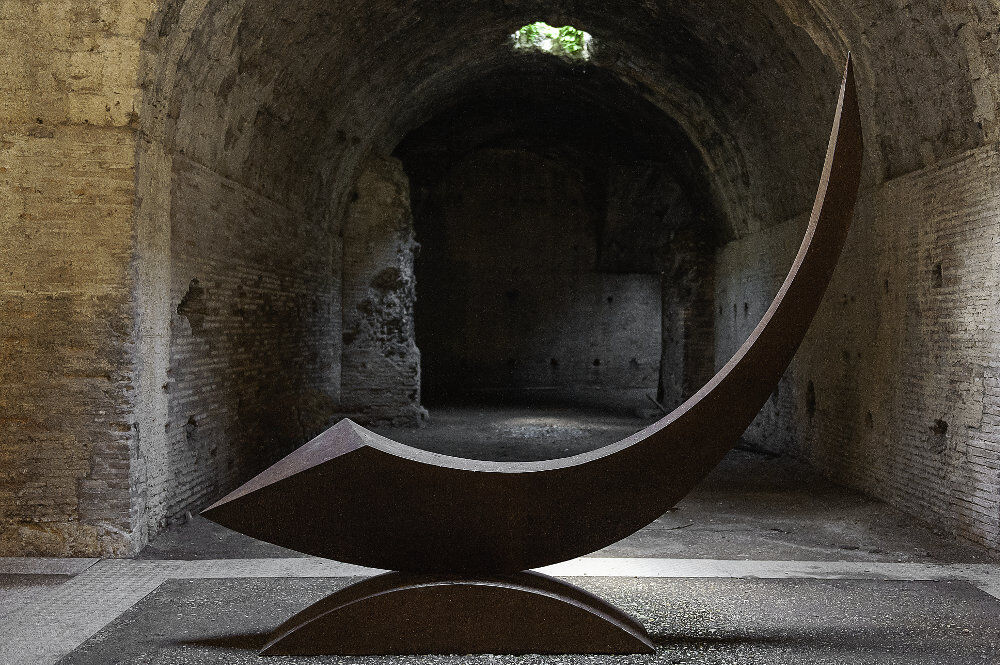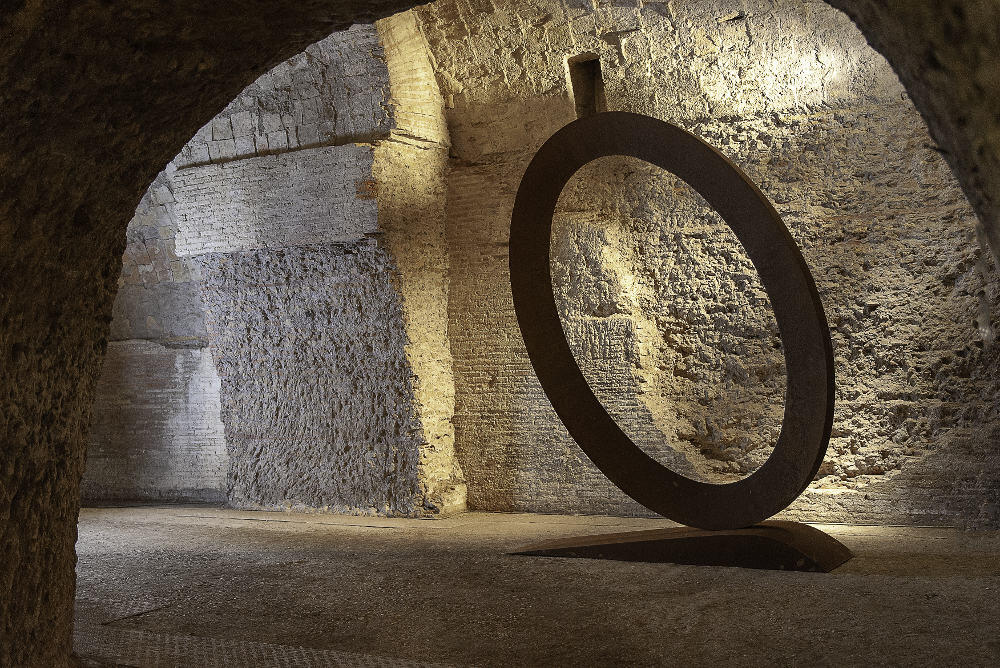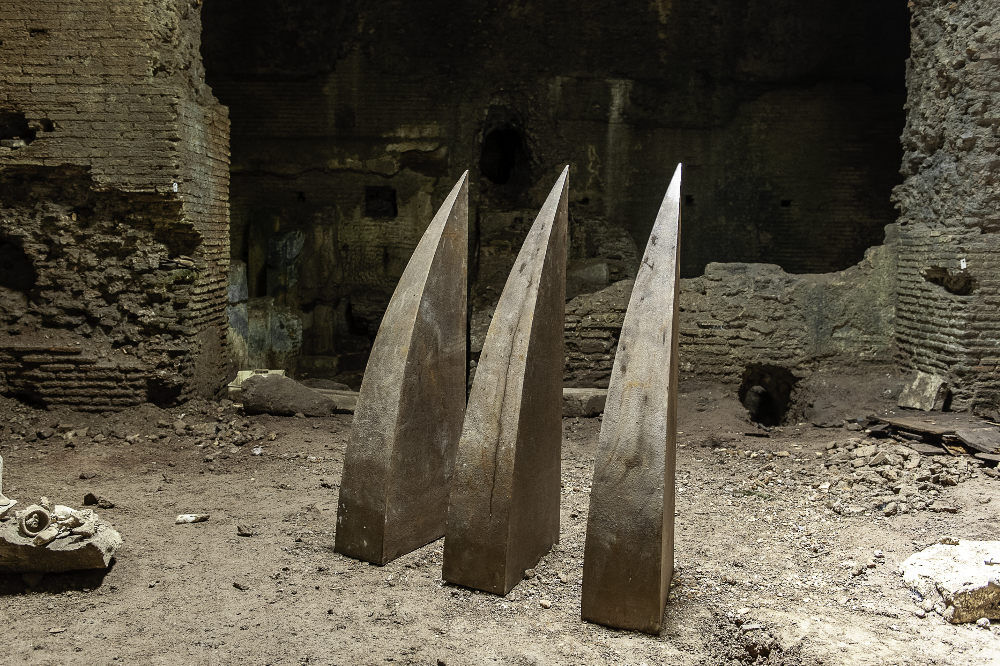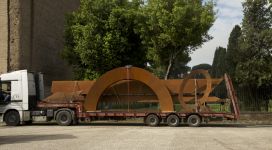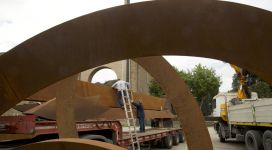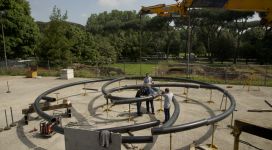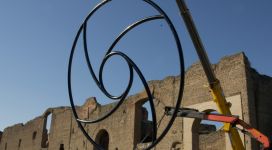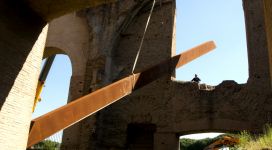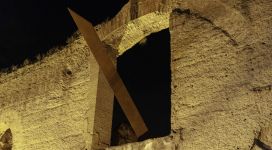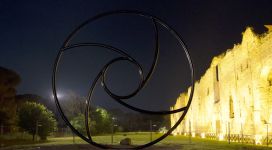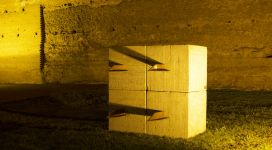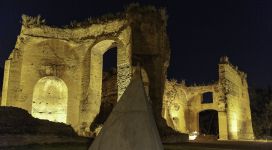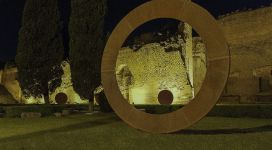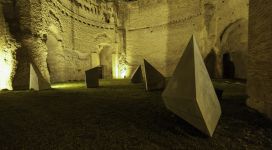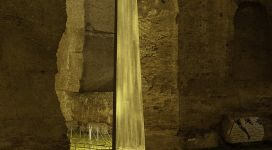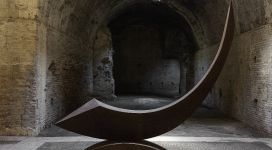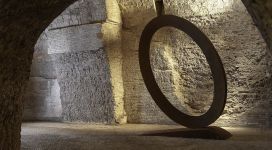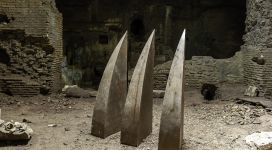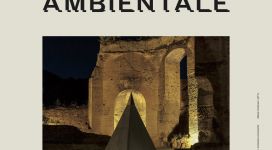| MAURO STACCIOLI | Biography | |
| Sensibile ambientale | ||
| curated by Alberto Fiz | ||
| Baths of Caracalla | ||
| 13 june – 30 september 2018 |
The first retrospective dedicated to the Tuscan artist since his death is promoted by the Rome Special Superintendence for Archaeology, Fine Arts and Landscape, in collaboration with the Rome National Gallery, Mauro Staccioli Archive and Electa.
The title, Sensitivity to the Environment, is meant to underline that this exhibition is dedicated to the contemporary Italian artist who most sensed the relationship between the work of art and the surrounding environment where it finds its setting.
A homage made through sixteen sculptures – such as Seneffe, a ten-metre-diameter work made of tubular steel, or Portale a ten-metre-high Corten steel “portal” – which dialogue and interact with the immense Roman bath complex. Numerous historic works such as Barriera (Barrier) or Piramide (Pyramid) are on display.
The ten other sculptures with their basic geometries often in suspended equilibrium, including Triangolo dai lati curvi (Triangle with Curved Sides), Ellisse verticale (Vertical Ellipse) or Cerchio imperfetto (Imperfect Circle), are arranged in the atmospheric underground passages of the Baths which are also the home to ancient relics.
The exhibition is accompanied by an extensive monograph published by Electa which, alongside the essay by Alberto Fiz, publishes pieces and testimonies by Marco Bazzini, Bruno Corà, Hugh Davies, Massimo Mininni, Robert C. Morgan, Giuseppe Panza di Biumo and Simona Santini, and an interview with Gillo Dorfles.
